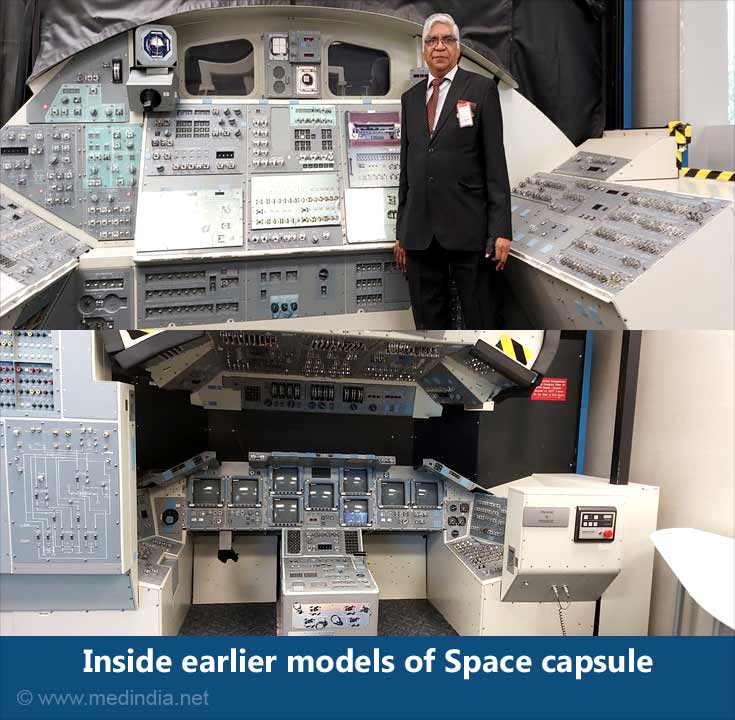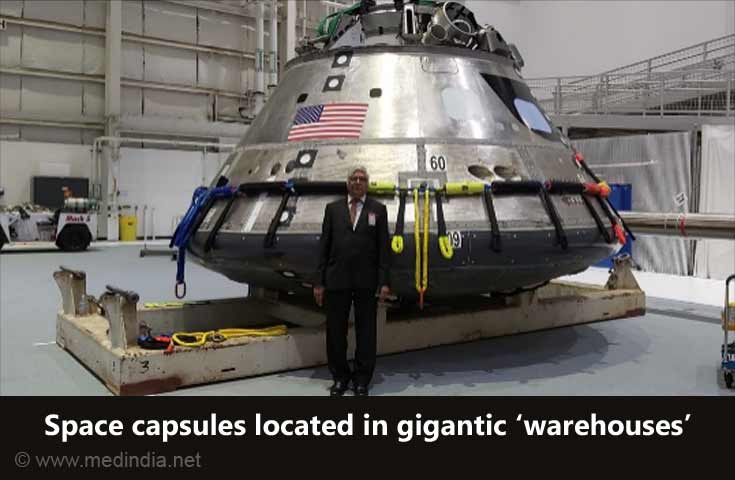Visit to Space Vehicle Mock-up Facility (SVMF)
Post lunch the ever energetic Dr William SVMF. This Facility was literally out of the world!! pun intended ! Fig 1 &2 will give the reader some idea of the facility.


Visit to the robotic section gave an opportunity to see at first hand functional humanoid robots that will accompany humans during space flights and perhaps relieve them of mundane tasks.
Dr. Tarver explained the intricacies of general training given to all astronaut candidates and also the meticulous attention to nitty-gritty - the most minute details concerning the physical, mental and emotional health of the astronauts. This was of course, expected. What astounded me however was this extended to every single individual in any way connected with the Human Space Flight Mission at any time anywhere - be it launching phase, re-entryphase, while in orbit. Retrospectively this was obvious! After all, one does not want the driver transporting the giant rocket to the launching pad to get a seizure. Neither does one want the Mission Controller to have emotional problems at home. The physical and mental health of the entire family of the NASA team is critical!!
Orion Multi-Purpose Crew Vehicle (Orion MPCV)
I was then taken to the ORION section. The Orion Multi-Purpose Crew Vehicle (Orion MPCV) is a class of partially reusable spacecraft used in NASA's human spaceflight programs. Consisting of two components - a Crew Module (CM) and a European Service Module (ESM the spacecraft are designed to support crewed exploration beyond low Earth Orbit. Orion can support a crew of six up to 21 days undocked and up to six months docked and is equipped with solar power, an automated docking system, and glass cockpit interfaces.
Future Planetary Rover
Though I had seen videos of Curiosity on the surface of Mars and was familiar with the photos of the Martian surface transmitted to earth it was entirely a different experience to touch and feel the prototype of the rover which one day would carry humans to Mars. A few days before I wrote this article, Elon Musk had publicly announced that he would do everything possible to see humans on Mars before he left the world. Even I am optimistic !! I wonder whether I would also see this on TV!!! This planetary surface exploration device is designed to move across the solid surface on a planet or other planetary-mass celestial bodies. Some rovers have been designed as land vehicles to transport members of a human spaceflight crew; others have been partially or fully autonomous robots. Rovers are typically created to land on another planet (other than Earth) via a lander-style spacecraft, tasked to collect information about the terrain and to take crust samples such as dust, soil, rocks, and even liquids. They are essential tools in space exploration.








